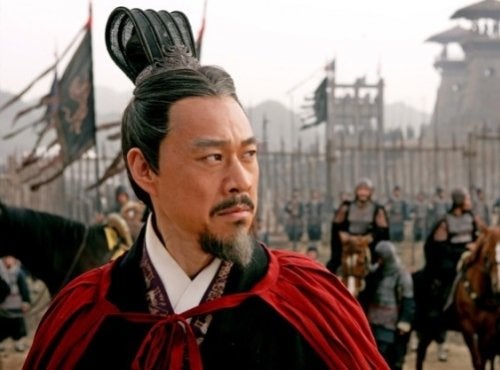(Back to main Thanksgiving Grill page.)
When action master John Woo started work on his latest film, “Red Cliff,” he was understandably a little nervous. On the one hand, the action epic — which reunites Woo with action star Tony Leung for the first time since the 1992 classic “Hard Boiled” — seemed tailor-made for Woo. But the project, set in ancient China some 1,800 years ago, also presented enormous aesthetic and logistical challenges to the director shooting his first feature film in mainland China.
 It’s my first big feature there, but I shot my last film, in 2005, in China — the short film “Song Song and Little Cat” for UNICEF.
It’s my first big feature there, but I shot my last film, in 2005, in China — the short film “Song Song and Little Cat” for UNICEF.You say it was a huge undertaking … how huge?
I wanted to show that in China, we can make an epic of the same scope and quality of a Hollywood film. It took two years and 13 scripts and revisions. The film is very complicated and there are so many different stories and characters in it. Also, all Asians are very familiar with this part of history, but western audiences don’t know about it. So it took a lot of work to make it work for both Asian and western audiences.
It’s based on the Chinese book “Romance of the Three Kingdoms,” and we tried to keep it as true to the historical facts as possible.
Yes, as we had to build nearly 30 full-scale battleships, then we shot all the live-action stuff on them, and then used CGI for the rest. We did a lot of research to get all these battle scenes right, and I think it’s very close to what happened.
Around $80 million, which isn’t much by Hollywood standards, especially as we made two movies – as it’s in two parts, running at five hours, for the Asian market. But that version’s too long for audiences in the west, so we cut a separate U.S. version that’s just two and a half hours long.
It was pretty easy. We got huge financial support from Japan, and then we also got money from Korea, Taiwan, Hong Kong and China. People in Asia love movies so much and there’s a lot of confidence there in the market, so it wasn’t a problem.
There’s a very big film industry there now, and there are so many young filmmakers there who are so fluent in film and so passionate about it. And the audiences love to watch all kinds of films — Asian, Hollywood, European. It’s really open right now.
Not too much.
Not as much (laughs). They’re pretty careful about that and keeping bad influences away from the young people. But they just give you friendly advice. They don’t say, “You cannot do that! You must do that!”
I’d love to. I have two projects I’m developing here – one about Marco Polo, and another based on Jean-Pierre Melville’s “Le Samourai.” I’d never give up Hollywood. I live here and I love working here.
